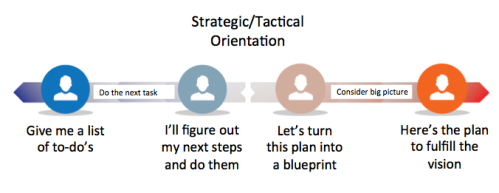November 22, 2010
by Steve Woodruff
If some famous fashion label VP came up to me and said, “We need a social media strategy – can you help us do it?” – I’d promptly answer, “No, I can’t.”
Why?
- Social media is not a strategy.
- Though I am heavily involved in social networking, I couldn’t bring business value in this sector.
 The point is: you’re looking for business strategy, and business value. Not some stand-alone approach to the latest fad called social media. If you want to win, you don’t just employ a “knight strategy” in chess, do you?
The point is: you’re looking for business strategy, and business value. Not some stand-alone approach to the latest fad called social media. If you want to win, you don’t just employ a “knight strategy” in chess, do you?
Here is where the discussion should take place:
– We need to launch a Facebook page for our customers! We need a strategy for real-time communications and better engagement with (this and/or that) set of stakeholders. Let’s assume that there is a concrete business answer to the question “Why?” (is there?). Now we can begin to talk about various media and approaches that may be appropriate. “We need a Facebook page!” is not a strategy.
– We need a blog! We have a real problem with public perception and need to humanize to face of the company over the long-term. OK, we can begin to develop a strategy that may involve social media – but will probably also involve serious culture change. Presenting the company story via social media is powerful and potentially has great value, but – a Twitter page or a blog will not rescue an insular and sullen corporate culture. A social media strategy won’t make you nice to work with, or work for. As Olivier Blanchard stated in a recent tweet, “social media amplifies whatever you bring to the table: Knowledge or ignorance, generosity or greed, honesty or dishonesty.”
– We should launch a YouTube channel! We need to provide new avenues of value to our customers in order to make them advocates and evangelists. Excellent starting place. Now, what role will communications and person-to-person engagement play in this? Is information curation and dissemination a major value-add? Making videos on YouTube might get page views, but will it provide value? Ask: what is my audience looking for? – not just what are they looking at.
– We need to show up on Twitter searches! We need to be more “find-able” on-line. This is a no-brainer, but the question is; How? Will social media provide that exposure, and do you have the personnel resources to feed the beast over the long-haul? Is it a simpler SEO issue? Would a beefed-up LinkedIn presence be more effective than a blog? Best methods for raising an on-line profile will vary from industry to industry, and from need to need. Copying someone else’s social media approach isn’t a strategy.
– We need to be out there on all the social networks! We need to build a broad opportunity network. Social networking technologies are great for this. But they are not the strategy, they are a component of a business approach to networking. Just putting a profile on every social site known to man or beast is not the same as creating and cultivating a business network.
Here in pharma world, where I do a good bit of my business, we finally crossed the Rubicon this year – companies have by and large moved out of the “what is social media and should we even touch it??” phase, into the “how do we do this?” phase. And for those of us involved in the industry evangelistic work over the past years, that’s rewarding – but also dangerous. Because now, social media is often treated as a bolt-on, a check-the-box component of the marketing mix. The awareness level has grown – three cheers! – but the strategic understanding aspect is still immature in most cases.
Yes, people and companies have to start somewhere, and specific tactics using social platforms are often the first toes in the water. An iPhone app can (and should) be part of a big-picture, longer-term strategy with business goals beyond just checking off the “my brand did social in 2010” box.
Because in the long run, you don’t need a social media strategy, or a stand-alone social media expert. You need a holistic business strategy. Which should incorporate an intelligent approach to the opportunities, challenges, and trench work of digital networked communications. People who know social media can help you learn the landscape, but don’t carve something off into a “social media strategy.” Increasingly, that notion will seem as odd as proposing an e-mail strategy, or an operating system strategy.
Great people and strong companies will flourish under the spotlight; mediocre companies and poseurs will simply be exposed for what they are. If you’re in the latter category, as Jay Baer recently put it, maybe you’re just not ready for social media. You may have some cultural infrastructure to build, and some broader strategies to put in place first. If you don’t understand the forces at work, then social media may not be a shovel-ready project – yet.
If you can articulate a sound business strategy that involves tactical usage of digital networked communications, go for it. Otherwise, you’re grabbing onto a solution without defining the problem.
(now if you do come to me about social media in fashion or some other field, I may not be your guy, but I’ll try to help you find the right resource you’re looking for. Because matchmaking clients with providers is a business need I can meet!)
————-
Subscribe to the Connection Agent blog via Reader (RSS) | via e-mail
Twitter: @ConnectionAgent | @swoodruff
Connect with Steve Woodruff







Recent Comments